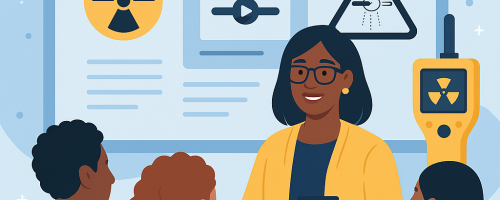Nuclear technology can save lives, aid in industrial quality control and improve the quality of products through use of radioisotopes. They can be used for screening, diagnosis and therapy of various medical conditions. Every week 20,000 patients in Canada benefit from the nuclear imaging procedures. Radioisotopes can also be used to preserve seeds and food products, and breed disease-resistant plants. In construction and manufacturing radioisotopes are often used for non-destructive examination.
Did you know that the Canadian Nuclear Safety Commission licenses the use and production of over 250 radioisotopes in Canada?
To ensure Canada remains a world leader in the production of life-saving isotopes, a coalition of science, health care and nuclear sector organizations came together to form the Canadian Nuclear Isotope Council (CNIC). The CNIC has the mandate to bring awareness and support long-term policies at the domestic and international level that will save countless lives and support health-care innovation for decades to come.
Today, the Radiation Safety Institute of Canada, joined a growing list of member organizations of the Canadian Nuclear Isotope Council (CNIC).
“As a world-class centre of excellence, our mission is to promote radiation safety and awareness through sharing scientific knowledge and best practices,” said Vic Pakalnis, P.Eng., Interim President of the Radiation Safety Institute of Canada. “Canadian-produced medical isotopes save lives through cancer treatments and medical instrument sterilization worldwide, and we are partnering with CNIC to assure the public that Canada will maintain the world’s most rigorous standards of safety and quality assurance throughout the production and global supply chain, Our institute is known among our stakeholders, clients and the community for our dedication to safety, the quality of our work and the integrity of our people, and we are pleased to bring our same high standards to this relationship with the CNIC.”
“In the nuclear industry safety is always our number one priority, and it is no different when it comes to the processing, handling and manufacturing of isotopes,” said James Scongack, Chair of the CNIC. ”At Bruce Power we put a great deal of focus and effort into safe operations, worker safety, and active engagement within the local communities, and it’s important that the same critical care is taken by the entire isotope sector supply chain. Canadians and people and around the world rely on the continuous availability of medical isotopes and see the potential for market growth in this industry. We must continue to do that work by respecting the highest safety standard







